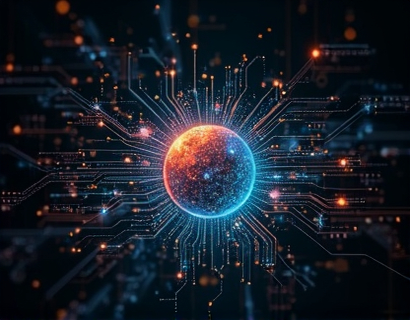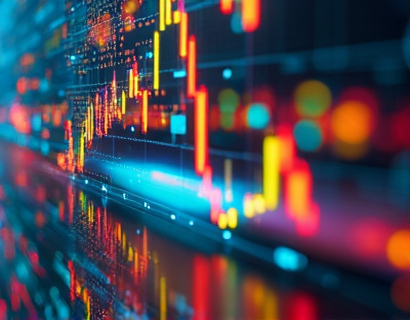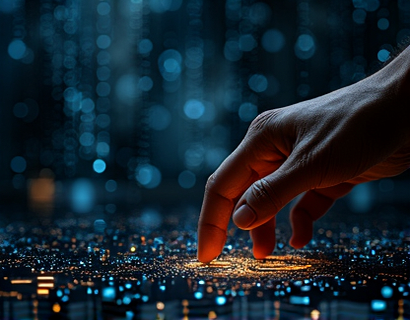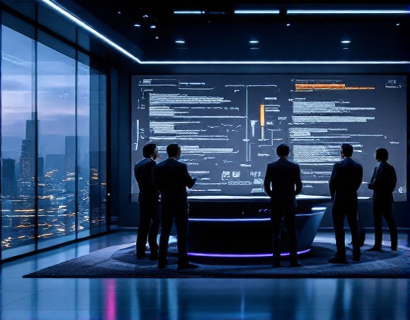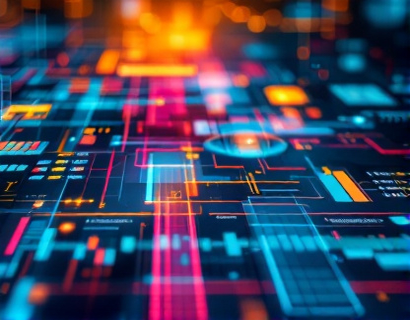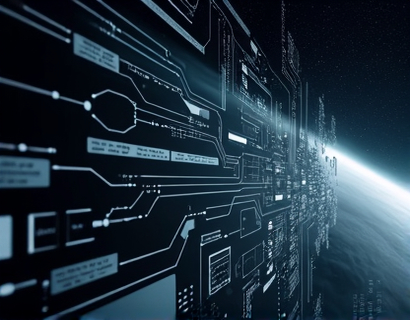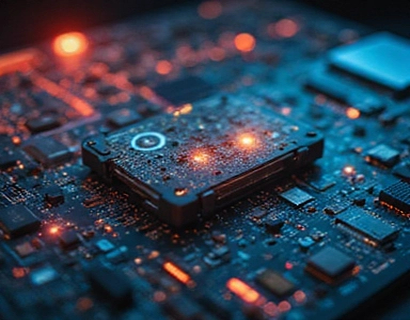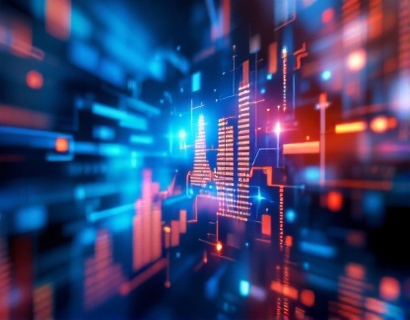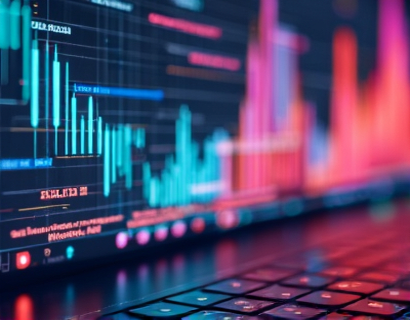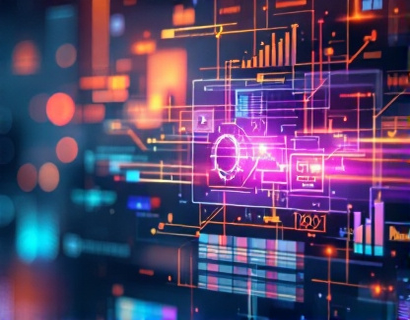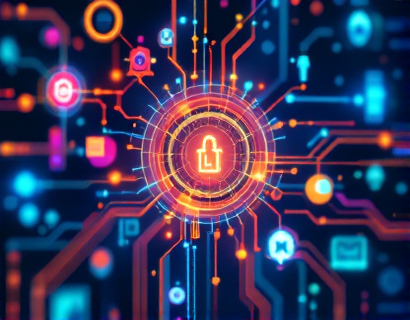AI and Crypto: Pioneering Financial Innovation for the Digital Age
The intersection of artificial intelligence (AI) and cryptocurrency is redefining the landscape of digital finance. This fusion represents a groundbreaking shift, offering unprecedented opportunities for innovation and efficiency in financial interactions. As we delve into this transformative domain, it's essential to understand the fundamental technologies driving this change and their implications for the future of FinTech.
The advent of blockchain technology laid the groundwork for cryptocurrencies, providing a decentralized and secure method for transactions. However, the true potential of this technology was only fully realized when combined with AI. AI's ability to process vast amounts of data, learn from patterns, and make predictions has opened new avenues for enhancing the functionality and security of blockchain-based systems.
Enhancing Security with AI
One of the primary concerns in the crypto space is security. Traditional systems often rely on centralized authorities to manage and secure transactions, making them vulnerable to hacks and fraud. AI introduces a layer of security that is both dynamic and robust. Machine learning algorithms can detect anomalies and suspicious activities in real-time, significantly reducing the risk of fraudulent transactions.
For instance, AI-powered systems can analyze transaction patterns and identify deviations from the norm. These systems can flag potential security breaches before they occur, allowing for immediate action to be taken. Moreover, AI can enhance the security of private keys and wallet management through biometric authentication and behavioral analysis, ensuring that only authorized users can access sensitive information.
Optimizing Smart Contracts with AI
Smart contracts are self-executing contracts with the terms of the agreement directly written into code. They automate and enforce contractual obligations without the need for intermediaries. However, the complexity of smart contracts can sometimes lead to vulnerabilities and unintended outcomes. AI can play a crucial role in optimizing these contracts.
AI algorithms can analyze smart contract code to identify potential bugs and security risks. By simulating various scenarios and testing the contract under different conditions, AI can help developers refine and improve the code. This not only enhances the reliability of smart contracts but also reduces the risk of costly errors and exploits.
Furthermore, AI can assist in the creation of more efficient smart contracts by suggesting optimal code structures and optimizing gas usage. This is particularly beneficial in blockchain networks where transaction fees can be a significant concern. By streamlining smart contracts, AI ensures that they are both secure and cost-effective.
AI-Driven Cryptocurrency Trading
The trading of cryptocurrencies has become increasingly popular, but it is also notoriously volatile and complex. AI brings a level of sophistication and precision to trading that traditional methods cannot match. AI algorithms can analyze vast amounts of market data, including historical prices, trading volumes, and news sentiment, to make informed trading decisions.
Technical analysis is a key component of AI-driven trading. Machine learning models can identify patterns and trends in price movements, helping traders predict future price actions. These models can adapt and learn over time, improving their accuracy and reliability. Additionally, AI can execute trades at optimal times, minimizing human error and maximizing profits.
Sentiment analysis is another area where AI excels. By analyzing social media, news articles, and other online sources, AI can gauge market sentiment and adjust trading strategies accordingly. This holistic approach to trading not only enhances decision-making but also provides a competitive edge in the fast-paced crypto market.
Personalized Financial Services through AI
The integration of AI in the crypto space extends beyond security and trading to personalized financial services. AI can analyze an individual's financial data, including transaction history, investment preferences, and risk tolerance, to provide tailored recommendations and services.
For example, AI-powered financial advisors can offer customized investment strategies based on a user's specific goals and circumstances. These advisors can continuously monitor market conditions and adjust portfolios in real-time, ensuring that users stay on track to achieve their financial objectives. This level of personalization is particularly valuable in the crypto space, where the diversity of assets and the speed of market changes require agile and informed decision-making.
Moreover, AI can simplify the onboarding process for new users by automating KYC (Know Your Customer) procedures and providing educational resources tailored to their level of expertise. This not only enhances the user experience but also promotes broader adoption of crypto assets.
Decentralized Finance (DeFi) and AI
Decentralized Finance (DeFi) represents a significant evolution in the crypto ecosystem, offering decentralized alternatives to traditional financial services such as lending, borrowing, and trading. AI plays a pivotal role in enhancing the functionality and accessibility of DeFi platforms.
One of the key challenges in DeFi is the complexity of protocols and the need for users to understand intricate financial concepts. AI can bridge this gap by providing intuitive interfaces and automated guidance. For instance, AI-driven chatbots can assist users in navigating DeFi platforms, answering questions, and providing step-by-step instructions for various transactions.
AI can also optimize DeFi protocols by analyzing data from multiple sources to identify inefficiencies and opportunities for improvement. This can lead to the development of more efficient lending algorithms, better risk management strategies, and more robust governance mechanisms. By leveraging AI, DeFi platforms can become more user-friendly and resilient, attracting a broader audience.
Challenges and Considerations
While the integration of AI and crypto offers numerous benefits, it also presents several challenges that must be addressed. One of the primary concerns is the regulatory landscape. The rapid evolution of both AI and crypto has outpaced regulatory frameworks, leading to a patchwork of rules and uncertainties.
Regulators are increasingly focusing on the risks associated with AI in finance, such as algorithmic bias, data privacy, and market manipulation. It is crucial for developers and businesses to adhere to ethical standards and comply with existing regulations to ensure the sustainable growth of AI-powered crypto solutions.
Another challenge is the technical complexity involved in integrating AI with blockchain technology. Ensuring interoperability, scalability, and security requires significant expertise and resources. However, as the technology matures and more solutions emerge, these challenges are likely to be overcome.
Future Prospects
The future of AI and crypto is bright, with numerous exciting developments on the horizon. One area of interest is the development of AI-driven decentralized autonomous organizations (DAOs). DAOs combine the decentralized nature of blockchain with the decision-making capabilities of AI, potentially revolutionizing governance and community-driven projects.
Another promising direction is the integration of AI with quantum computing. Quantum computers have the potential to solve complex problems that are currently infeasible for classical computers, including certain AI algorithms. This synergy could lead to breakthroughs in areas such as cryptography, optimization, and data analysis, further enhancing the capabilities of AI in the crypto space.
Additionally, the rise of Web3 and the Metaverse presents new opportunities for AI and crypto to converge. AI can enhance the user experience in virtual environments, from personalized avatars to dynamic economic systems within virtual worlds. This fusion has the potential to create entirely new forms of digital interaction and economic activity.
In conclusion, the combination of AI and crypto is not just a technological trend but a fundamental shift in how we approach finance and interaction in the digital world. By leveraging the strengths of both technologies, we can build more secure, efficient, and personalized financial systems. As the landscape continues to evolve, staying informed and adaptable will be key to thriving in this exciting new era of FinTech.



